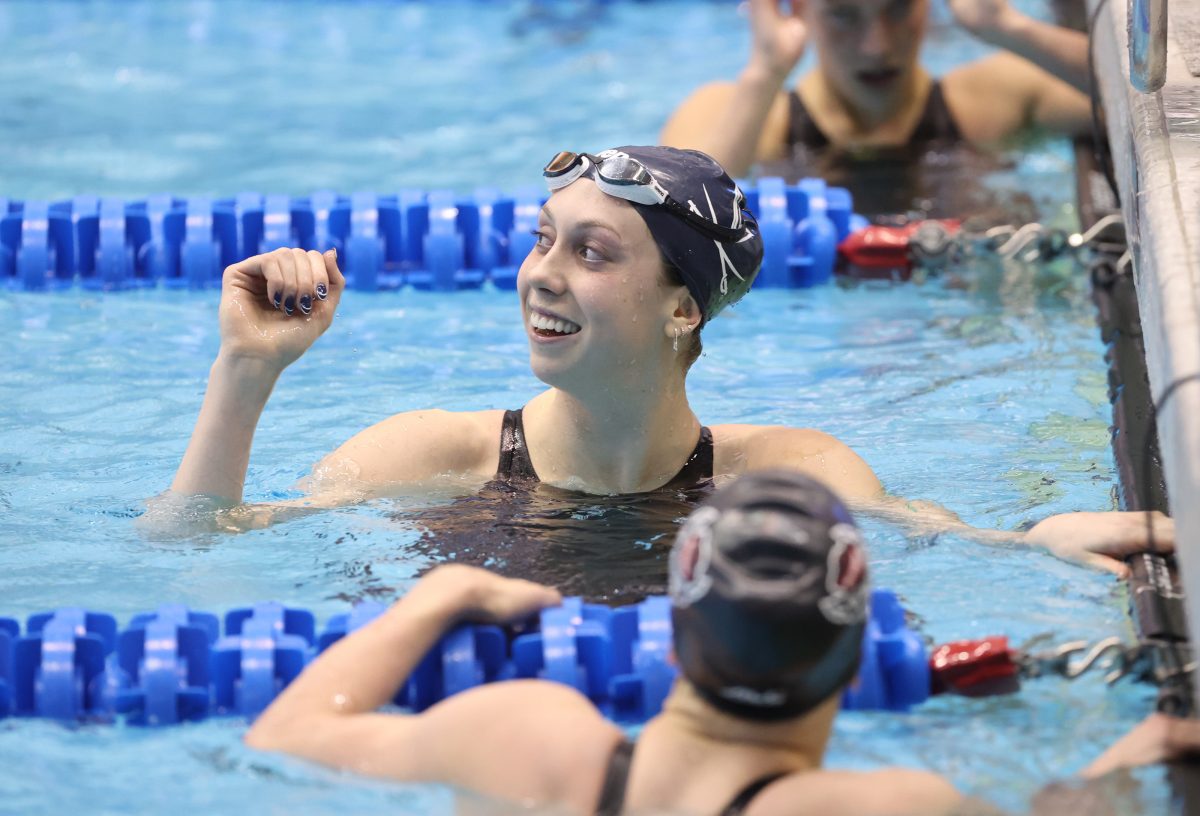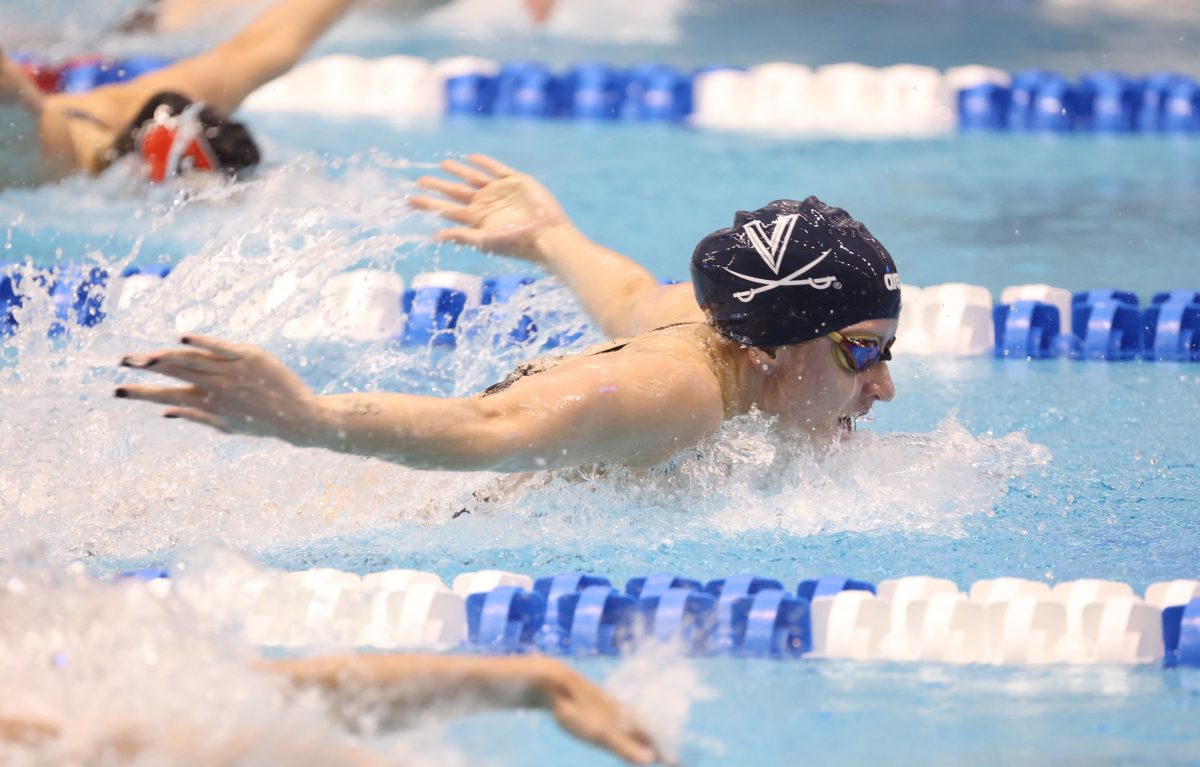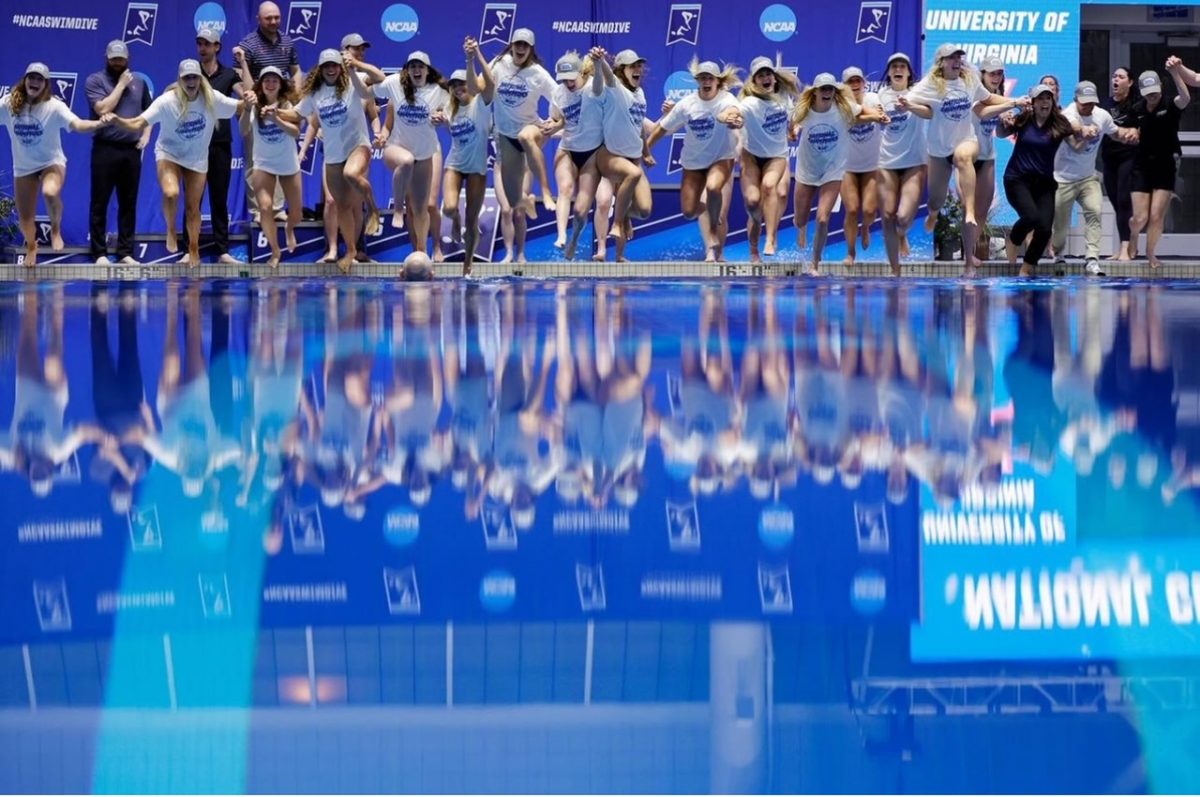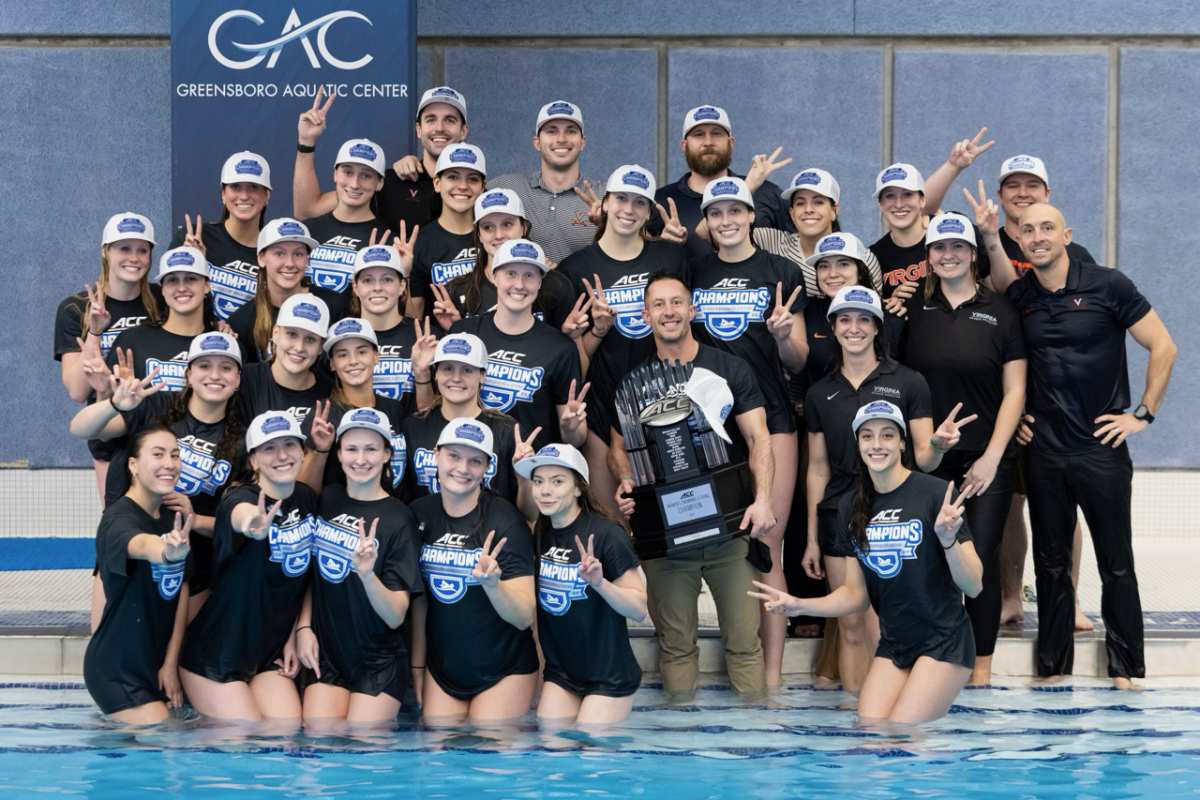The University of Virginia will be well represented in the pool at the 2024 Olympics this summer. Several current and former Hoos will swim for Team USA, along with Cavalier commit and Western Albemarle High School student Thomas Heilman.
Even before the competition, the pressure was on for former UVA swimmer and Olympian Kate Douglass, who, as one of the top-ranked swimmers in the country, has been widely considered someone to watch coming into the event. Douglass smashed all expectations, including her own, by winning three events: the women’s 100-meter freestyle, 200-meter breaststroke, and 200-meter individual medley.
Finishing right behind Douglass in the 200-meter IM was Alex Walsh, who solidified her spot on Team USA with the second place finish. The pair has dominated this event in international competitions for several years, with Walsh and Douglass winning silver and bronze respectively in the race at the 2020 Tokyo Olympics.
Alex’s younger sister, Gretchen Walsh, also made a major splash at Olympic trials. On the opening day of the swim meet, she set a new world record in the women’s 100-meter butterfly semi-final with a time of 55.18 seconds.
“I’m still in shock,” Gretchen told NBC Sports in an interview after winning the event final. “Making the team was the biggest goal, but getting a world record was absolute insanity. I couldn’t ask for a better first event of the meet.”
In addition to the 100-meter butterfly, Gretchen will represent the U.S. in the 50-meter freestyle and on the 100-meter freestyle relay team.
While Alex is already an Olympic medalist, this year’s games will be the first time both Walsh sisters swim for Team USA. “To have a sibling duo that is this elite … both going for the same Olympic dream is so rare,” Alex said at a press conference in the weeks leading up to Olympic trials. “We’re proud of each other no matter what.”
Current Cavalier Emma Weber also made the roster in the 100-meter breaststroke, qualifying for her first Olympics. Weber swam a blazing-fast 1:06.10 in the event finals, setting a new personal best and finishing 0.67 seconds behind defending two-time Olympic gold medalist Lilly King.
Alumna Paige Madden also had a stellar showing at trials, qualifying for the Olympic team individually in the 400- and 800-meter freestyle races. Madden will also be competing as part of the 200-meter freestyle relay team, an event for which she won a silver medal in 2020.
Virginia Head Coach Todd DeSorbo, who was tapped to head the US women’s Olympic team last year, will coach Douglass, Weber, Madden, and the Walshes in Paris.
On the men’s side of trials, Charlottesville 17-year-old Thomas Heilman made waves as the youngest swimmer to make the US men’s Olympic swim team since Michael Phelps. Heilman will represent the US in the 100- and 200-meter butterfly races.
Several other current and former Virginia swimmers posted impressive times at Olympic trials, with Claire Curzan and Jack Aikins coming just short of making the cut for Paris. Aikins took the 2023-24 season off from NCAA competitions to focus on the trials, and placed third in both the 100- and 200-meter backstroke finals.
The 2024 Paris Olympics kick off on Friday, July 26, with swimming events starting the next day.



